The Covid-19 pandemic has been a challenge for the global fruit industry for almost 2 years now. There have been several changes and transformations in the industry in response to these challenges.
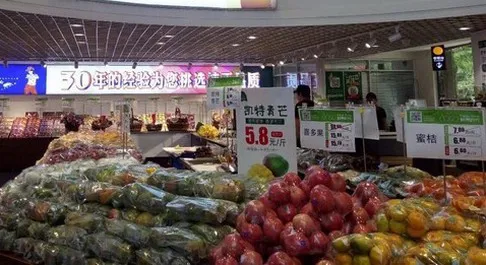
Market demand for imported fruit grows fast in China’s southwest
Imported fruit is no longer an expensive, exclusive product for wealthy consumers in first-tier cities. The living standards in second- and third-tier cities are rising quickly and so is the consumption of imported fruit. Imported cherries, blueberries, and grapes have all become a common sight in the market.
Manager Yi of Guizhou Shouyang Enterprise Management comments: “Our retail network covers the entire country. However, when we look at our sales figures, the fastest-growing market is in China’s southwest. This area receives a lot of economic support from the country. The income levels of the local population have greatly improved in the last few years. Many young people who sought opportunities in Beijing, Shanghai, Guangzhou, and Shenzhen, are now returning to China’s southwest with resources and new ideas about consumption. These young people also bring with them preferences for products that are popular in first-tier cities, such as import fruit. That is why the supply of high-end fruit and import fruit in China’s southwest is rapidly growing more diverse,” said manager Yi.
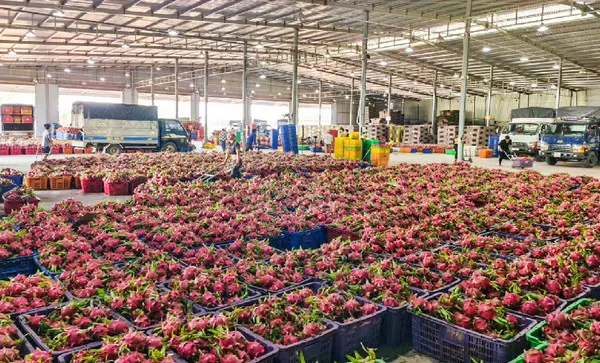
Close cooperation between markets and production areas
According to manager Huang of the Shanghai International Fruit Expo, price and product quality are no longer the only factors that play a role in market competition.
“In the past, when there was a shortage in the domestic market, a trader could go to Guangzhou and import goods, then transfer them to their local market and make a profit. Then they had to go one step further and purchase directly from the production area. Now even that era is gone and will not come back. The market is growing more transparent, and in some cases the prices in production areas and wholesale markets are upside down. There is a lot of pressure on the profit margin. Traders need to manage their supply chain and provide services for retail channels. However, retail channels are not that easily serviced, the maximization of gross profit requires a capacity to provide services throughout the country. This is an indication that the era of individual entrepreneurs is over. Traders have to set up modern enterprises, pay attention to management, set up systems, and establish long-term development goals.”
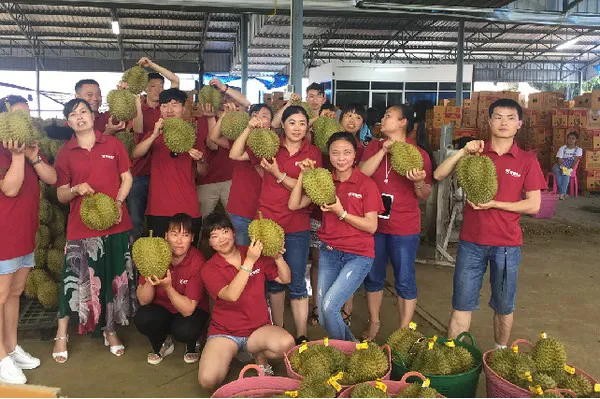
Manager Yang of Shouyang Enterprise Management agreed: “There is a trend towards close cooperation with production areas. Personal connections in production areas can help secure a stable supply of high-quality, fresh produce. And the elimination of intermediaries cuts down the cost price of fruit, which improves its competitive market advantage. I think that direct purchase in production areas will be the main trend in the fruit market in the coming years. Of course not all companies have the ability to secure supplies from production areas. This requires years of experience and specialized knowledge, and the careful construction of communication channels. Companies also have to invest a lot of time, effort, and financial resources.”
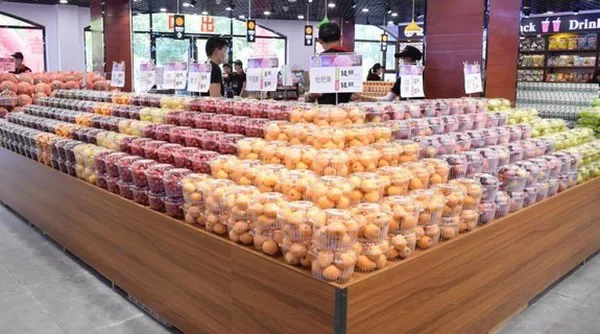
Top-quality domestic fruit is on the rise
The outbreak of Covid-19 created obstacles for sea freight of imported fruit. The import market suffered from many additional obstacles because of the pandemic. At that time some consumers shifted their attention from import fruit to top-quality domestic fruit. They began to realize that the product quality and flavor of premium domestic fruit could easily compete with import fruit. And domestic fruit has a distinct price advantage over import fruit. Furthermore, some consumers worried about the risk of infection from import fruit. The competitive market position of import fruit suffered as a result of this damaged reputation.
Now that the consumption power in second- and third-tier cities is growing, import fruit is no longer the expensive, high-status fruit it once was. Some import fruits have turned into staple fruits and considering the high cost price, traders find it more difficult to make a profit. That is why some traders have switched their attention to the retail of premium domestic fruit.
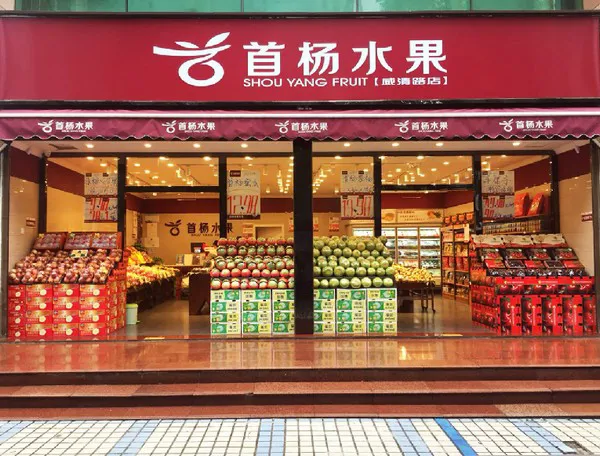
Lack of premium fruit brands
Manager Zhou at Lehe Consulting Co., Ltd., explained that the domestic fruit industry has rapidly developed in the last few years. These developments draw the attention of foreign investors who see an opportunity in China’s growing fruit industry. Many Chinese companies are currently implementing standardization of plantation, post-harvest preservation, and processing systems.
“People who can spend a lot of money can also distinguish between top quality and inferior products. For example, the price of Dalian cherries is even higher than the price of import cherries these days,” said manager Zhou.
One spokesperson for a wholesale market in Guangzhou added that: “The price of some domestic premium fruits is not that humble. Premium Hongmeiren tangerines, for example, sell for as much as 35 yuan [5.34 USD] per 0.5 kg. And the popular domestic Sunshine Rose grapes sell for 65 yuan [9.91 USD] per 0.5 kg.”
“There has been a sudden explosion of domestic premium fruit brands in the last few years, such as Xinjiang plums or Taizhou muskmelons. These brands are quite strong in the domestic market. However, large-scale chain stores rarely develop premium brands. Even though domestic fruit has high added value, traders often sell them in bulk or in cheap packaging. I think that producers and retailers should familiarize themselves with strong brands and learn from them. Only then will the added value of domestic premium fruit brands increase,” said Mr Zhou.
Sango Co., Ltd.
Zhang Tianyi
E-mail: tim_zhang@sangofruit.com
Lehe Consultancy Co., Ltd.
Zhou Weiqi
Tel.: +86 18268344466
Shanghai International Fruit Expo
Mr. Huang
E-mail: everflourish@fruitexpo.cn
